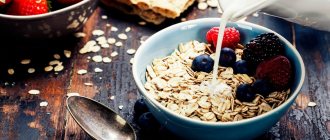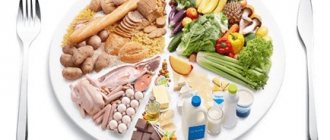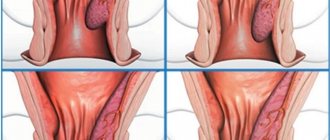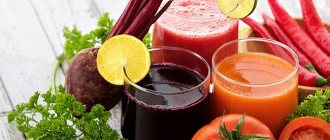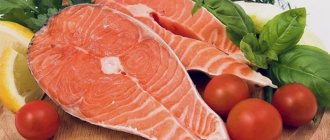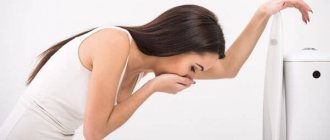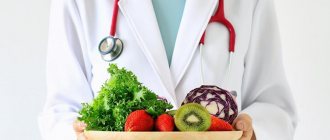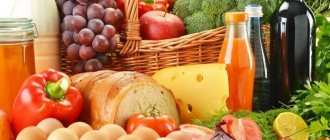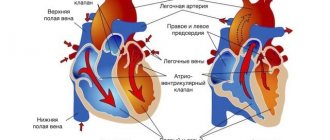If you notice the first symptoms, you must immediately make an appointment with a doctor at our clinic. Sore throat is an infectious disease. People of all ages can be affected by this disease. Children who have not yet reached adolescence are especially often affected. Other age groups can also get sick, for example, adults under 45 years of age. In pensioners and infants, sore throat is less common.
You should not self-medicate. This infectious disease has a number of nuances that cannot always be recognized and treated at home. The clinic suggests not to risk your own health and make an appointment with a general practitioner. The center employs only highly qualified doctors with extensive experience.
General principles of nutrition for tonsillitis
- The patient needs to be fed 5-6 times a day in small portions.
- Food should be tasty and aromatic.
- If the patient does not want to eat, he should not be forced. It won't do him any good.
- The total amount of protein should be approximately 70 g/day, fat - 60 g/day, and carbohydrates - 300 g/day.
- You should not give the patient foods that he has not tried before.
- During treatment, it is necessary to exclude allergenic foods.
- It is necessary to give the patient juice and teas rich in vitamins and especially vitamin C, but with a small amount of sugar. It is also useful to eat honey (if you are not allergic to it).
When should you have your tonsils removed?
Removal of tonsils is resorted to only when the process has already gone too far, that is, serious complications have developed and the inflammatory focus cannot be tolerated. With compensated tonsillitis, most otolaryngologists consider conservative treatment to be more correct. This treatment allows not only to preserve the tonsils, but also to restore their protective abilities.
Treatment, as well as the prevention of tonsillitis, begins with the improvement of the nasopharynx and oral cavity, as well as the restoration of nasal breathing, if it is impaired. Often the desired effect is achieved by systematically washing the lacunae of the tonsils with disinfectant solutions.
You can get a consultation with an ENT doctor by making an appointment at our YugMedTrans medical center by calling the phone number listed on the website.
Fully or partially limited products
Dietary nutrition for acute tonsillitis involves exclusion from the diet:
- Concentrated meat/fish/mushroom broths and first courses prepared on their basis.
- Fresh white and rye bread.
- Fatty meats/fish (pork, goose, duck, lamb, salmon, salmon, trout), canned food (meat and fish), smoked meats, sausages.
- Difficult and long-digesting cereals (barley, millet, pearl barley).
- Fried and hard-boiled eggs.
- Fatty dairy products (cream, sour cream), fatty sharp cheeses.
- Products that enhance gas formation processes in the intestines - legumes (beans, beans, peas, lentils), radishes, white cabbage, radish.
- Fruits containing coarse fiber/skin.
- Salted/pickled, fried foods, ketchups, sauces, seasonings that irritate the oropharyngeal mucosa.
- Culinary products (pastry, cakes), chocolate.
- Carbonated/alcoholic drinks, strong coffee and tea.
Table of prohibited products
| Proteins, g | Fats, g | Carbohydrates, g | Calories, kcal | |
Vegetables and greens | ||||
| spicy vegetables | 2,8 | 0,5 | 5,3 | 36 |
| vegetables legumes | 9,1 | 1,6 | 27,0 | 168 |
| canned vegetables | 1,5 | 0,2 | 5,5 | 30 |
| swede | 1,2 | 0,1 | 7,7 | 37 |
| cabbage | 1,8 | 0,1 | 4,7 | 27 |
| sauerkraut | 1,8 | 0,1 | 4,4 | 19 |
| cauliflower | 2,5 | 0,3 | 5,4 | 30 |
| bulb onions | 1,4 | 0,0 | 10,4 | 41 |
| cucumbers | 0,8 | 0,1 | 2,8 | 15 |
| canned cucumbers | 2,8 | 0,0 | 1,3 | 16 |
| pickles | 0,8 | 0,1 | 1,7 | 11 |
| white radish | 1,4 | 0,0 | 4,1 | 21 |
| turnip | 1,5 | 0,1 | 6,2 | 30 |
| celery | 0,9 | 0,1 | 2,1 | 12 |
| canned tomatoes | 1,1 | 0,1 | 3,5 | 20 |
| horseradish | 3,2 | 0,4 | 10,5 | 56 |
| garlic | 6,5 | 0,5 | 29,9 | 143 |
| sorrel | 1,5 | 0,3 | 2,9 | 19 |
Fruits | ||||
| pears | 0,4 | 0,3 | 10,9 | 42 |
Berries | ||||
| grape | 0,6 | 0,2 | 16,8 | 65 |
Mushrooms | ||||
| mushrooms | 3,5 | 2,0 | 2,5 | 30 |
Cereals and porridges | ||||
| corn grits | 8,3 | 1,2 | 75,0 | 337 |
| pearl barley | 9,3 | 1,1 | 73,7 | 320 |
| millet cereal | 11,5 | 3,3 | 69,3 | 348 |
| barley grits | 10,4 | 1,3 | 66,3 | 324 |
Bakery products | ||||
| Rye bread | 6,6 | 1,2 | 34,2 | 165 |
Confectionery | ||||
| cake | 3,8 | 22,6 | 47,0 | 397 |
Chocolate | ||||
| chocolate | 5,4 | 35,3 | 56,5 | 544 |
Raw materials and seasonings | ||||
| mustard | 5,7 | 6,4 | 22,0 | 162 |
| ketchup | 1,8 | 1,0 | 22,2 | 93 |
| mayonnaise | 2,4 | 67,0 | 3,9 | 627 |
| ground black pepper | 10,4 | 3,3 | 38,7 | 251 |
| soy sauce | 3,5 | 0,0 | 11,0 | 58 |
| vinegar | 0,0 | 0,0 | 5,0 | 20 |
Dairy | ||||
| milk 4.5% | 3,1 | 4,5 | 4,7 | 72 |
| cream | 2,8 | 20,0 | 3,7 | 205 |
Meat products | ||||
| pork | 16,0 | 21,6 | 0,0 | 259 |
Bird | ||||
| smoked chicken | 27,5 | 8,2 | 0,0 | 184 |
| duck | 16,5 | 61,2 | 0,0 | 346 |
| smoked duck | 19,0 | 28,4 | 0,0 | 337 |
| goose | 16,1 | 33,3 | 0,0 | 364 |
Fish and seafood | ||||
| dried fish | 17,5 | 4,6 | 0,0 | 139 |
| smoked fish | 26,8 | 9,9 | 0,0 | 196 |
| canned fish | 17,5 | 2,0 | 0,0 | 88 |
Oils and fats | ||||
| animal fat | 0,0 | 99,7 | 0,0 | 897 |
| cooking fat | 0,0 | 99,7 | 0,0 | 897 |
Alcoholic drinks | ||||
| vodka | 0,0 | 0,0 | 0,1 | 235 |
| cognac | 0,0 | 0,0 | 0,1 | 239 |
| beer | 0,3 | 0,0 | 4,6 | 42 |
Non-alcoholic drinks | ||||
| cola | 0,0 | 0,0 | 10,4 | 42 |
| lemonade | 0,0 | 0,0 | 6,4 | 26 |
| Pepsi | 0,0 | 0,0 | 8,7 | 38 |
| sprite | 0,1 | 0,0 | 7,0 | 29 |
| black tea | 20,0 | 5,1 | 6,9 | 152 |
Juices and compotes | ||||
| tomato juice | 1,1 | 0,2 | 3,8 | 21 |
| * data is per 100 g of product |
Drinking regime for tonsillitis
Nutrition for sore throat includes not only taking certain foods, but also plenty of warm drinks. The liquid helps remove waste products of pathogenic microorganisms from the body. Together, this reduces the symptoms of the disease and speeds up the healing process.
During a sore throat, patients are not allowed to drink carbonated drinks. Hot tea, coffee or cocoa is not recommended. Drinks containing alcohol are strictly prohibited. Alcohol can increase signs of intoxication in the body and worsen the patient’s condition.
The most healthy drinks include natural freshly squeezed juices, herbal decoctions and infusions. Decoctions of rose hips, lingonberry leaves and currants with the addition of honey will be effective. They contain large amounts of vitamin C, which will strengthen the immune system and help the body cope with the disease faster.
Diet for migraines - nutritional therapy
Migraines are periodic attacks of severe headaches, the characteristic feature of which is localization in one half of the head.
Headache is a fairly common problem known to almost every person; statistics show that almost 90% of women and 70% of men experience headaches from time to time. According to surveys, for 20% of the world's population, headache becomes a problem that worsens the quality of life. Young women are more predisposed to developing the disease. Pathology has the ability to be inherited, especially if the mother suffered from the disease, then the child’s chances of getting sick are very high and amount to up to 70%. In adults, the disease is diagnosed much more often, but about 8% of children also suffer from this pathology.
Types of migraine
- Migraine with aura is the appearance of visual, taste, and olfactory disturbances some time before the attack. Migraine with aura occurs in every fourth patient.
- Migraine without aura - pain occurs suddenly, without any warning signs. The most common type of disease.
Factors provoking the disease
- Emotional stress
- Physical fatigue
- Weather changes
- Smoking
- Errors in nutrition
Diet for migraines
Treatment should be aimed primarily at eliminating the factors that provoke the disease. For most people, all treatment of the disease comes down to stopping attacks. At first glance, you wouldn’t think that poor diet and headaches can be related, but as has already become known, food is not the last factor influencing the occurrence of attacks. For more effective treatment, the specialist gives the patient a list of prohibited and recommended products.
A diet for migraines should be based on compliance with the following rules:
- You need to eat in small portions, and the number of meals can be up to five. There should not be a long gap between meals. Large gaps between meals can cause headache attacks either on their own or cause constipation, which in turn can also provoke attacks, no matter how strange it may sound.
- Avoid fasting. Already five hours after the last meal, the blood sugar level decreases, the blood vessels narrow, which is a provoking factor.
- It is necessary to monitor the body's reaction to each product; the effect of food on headaches is different for each person.
- Avoid overeating
A diet for migraines should exclude foods containing substances such as:
Tyramine is an organic substance that is strictly prohibited for migraines. Tyramine is found in many foods and its concentration in them can increase during long-term storage and heat treatment.
The diet for migraines should exclude foods containing tyramine due to the fact that it contributes to vasoconstriction and increased blood pressure. The highest concentration of the substance is in: chocolate, overripe fruits, some types of cheeses (brie, feta, mozzarella, parmesan). A certain amount of the substance is found in meat, legumes, nuts, wine, beer, kefir, and yogurt.
Serotonin is a hormone produced by the body as a result of eating certain foods.
Foods containing serotonin:
- Confectionery
- Cheese
- Beans and soybeans
- Oyster mushrooms
- Cottage cheese
- Buckwheat
- Oatmeal
- Tremble
- Prunes
- Dried apricots
- Sea kale
Nitrates are salts of nitric acid that have a detrimental effect on the body of adults and children. An incredible amount of them is contained in preservatives and dyes, so nitrates should be avoided if possible.
Histamine is a biologically active substance that can provoke allergic reactions. Histamine can cause severe attacks. Therefore, it is important for a person suffering from this pathology to know which products contribute to its active formation.
Foods with high histamine concentrations:
- Alcohol. If you are prone to headaches, alcohol should be avoided altogether. Alcohol contributes to disruption of the normal functioning of blood vessels.
- Cheese
- Smoked meats
- Pickled vegetables
Proper nutrition for migraines
Having learned about which foods can cause pain, it seems that all the delicious food is left behind, however, do not be upset, because a diet for migraines can be not only tasty, but also healthy if you just combine the permitted foods correctly.
The diet must include foods containing magnesium. After conducting many studies, scientists realized that a lack of magnesium in the body is one of the leading causes of migraines. Treatment with magnesium preparations also showed positive results.
Protein is one of the constant components of the migraine diet. Protein-rich foods must be eaten fresh; after daily storage, it is undesirable to consume them.
Products that should be present in the diet:
- Sea fish
- Vegetable oil
- Lean meats
- Low-fat dairy
- Vegetable stew
- Processed cheese
- Boiled eggs
Coffee and headaches
There has been controversy surrounding this drink for decades; many doctors include it in the list of prohibited drinks for various diseases, migraine being no exception. A considerable number of people claim that if you drink a cup of coffee you can not only reduce pain, but also completely prevent an attack of pain. It has been established that drinking this drink in reasonable doses actually alleviates pain. The dose of caffeine should not exceed 250 mg per day; in such quantities its consumption will only be beneficial. But it must be remembered that for people with high blood pressure, drinking even a small amount of coffee can be harmful.
None of the products can instantly stop headaches, but by adhering to proper nutrition during migraines, you can significantly reduce the intensity and frequency of their occurrence.
Principles of diet therapy
The diet should consist of chopped, steamed food.
When treating tonsillitis it is necessary:
- reduce the amount of proteins (up to seventy grams), carbohydrates (up to three hundred grams), fats (up to about sixty grams);
- increase the number of meals up to five times, eat in small portions;
- boil food, steam it, and then serve it in chopped form;
- eat vegetables, various cereals;
- do not eat hot or cold foods;
- drink drinks containing vitamins: fruit drinks, herbal teas, sugar-free jelly.
Return to contents
Reviews and results
Reviews from the majority of patients who have suffered acute tonsillitis indicate that dietary nutrition protects the mucous membrane of the oropharynx, allows you to maintain the vital functions of the body, and is well tolerated.
- “... A sore throat is just my punishment. For as long as I can remember, from the age of 7 until the age of 25, I have had a sore throat almost every year. I no longer call a doctor, since I am constantly diagnosed with exacerbation of chronic tonsillitis. Previously, the disease was more severe with high fever and severe sore throat. The treatment is also standard and known to me - an antibiotic, antipyretics, gargling, diet and drinking plenty of fluids. Usually I am on bed rest for 4-5 days, doing everything necessary, drinking a lot of fluids and limiting my diet”;
- “...Acute tonsillitis in our children in autumn or winter is a common occurrence. The course is difficult - sore throat, temperature over 40 C, weakness, vomiting. We always call a doctor right away and worry about there being no complications. We followed all the doctor's orders. We give an antibiotic, antipyretics, and gargle with a solution of furatsilin, chamomile, and sage. We monitor the amount of liquid consumed. We try to regularly feed the child with chamomile and rosehip decoctions. We prepare dietary food - pureed soups, slimy porridge, weak chicken broth, and as we recover we introduce new dishes.”
Symptoms
Here it is necessary to distinguish two groups: local and general. Local ones include:
- Sore throat
- Difficulty swallowing
- Redness of the throat
- Enlarged tonsils, lymph nodes
It should also be noted that there is a rise in high body temperature, with a sore throat it can be 39-40, as well as symptoms such as weakness, chills, and general malaise. This is accompanied by pain in muscles and joints, and sometimes heart pain.
Your child may have additional symptoms. The baby will refuse to eat, become capricious and cry often. In addition to symptoms such as redness of the throat, there may be nausea, pain in the abdomen and ears, upset stomach and cramps. A child may either sleep constantly or suffer from insomnia. A child's sore throat may be accompanied by rhinitis and otitis media.

